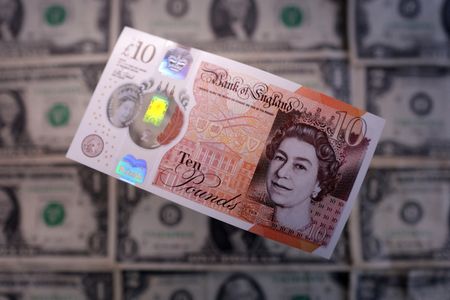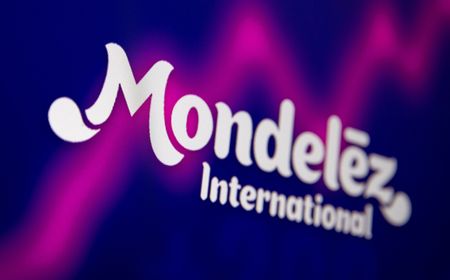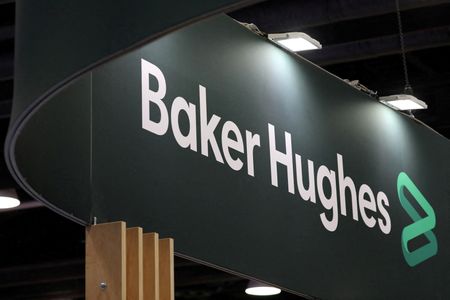By Lucy Raitano
LONDON (Reuters) -The pound fell to a 10-week low against a stronger dollar on Tuesday, while staying just off a two-year low against the euro, as markets continue to digest the announcement of the trade deal between the European Union and the United States.
The pound was last a touch higher against the dollar at $1.33570, but had earlier fallen to $1.3316, its lowest level since May 23.
The dollar was broadly stronger on Tuesday, continuing a rally after Sunday’s news that the United States and the EU struck a framework trade pact, the latest in a flurry of deals to avert a global trade war. Investors are also looking ahead to a U.S. Federal Reserve and Bank of Japan meeting this week.
The euro slid 0.1% against the pound to 86.71 pence, coming off a two-year high of 87.44 hit on Monday when the euro fell 0.78% against sterling, its largest one-day drop since mid-April.
“That reflected positioning,” said Chris Turner, global head of markets at ING, of Monday’s fall in euro/sterling.
Money markets show that traders believe the European Central Bank is probably closer to the end of its rate-cutting cycle than the Bank of England, which would favour the euro over sterling. In addition, the fiscal outlook in the euro zone appears healthier than that of the UK, where the government may be forced to raise taxes or borrow more this year.
“Those two opposing stories have made euro/sterling quite a popular trade, and part of that unwound in a bit of hurry yesterday,” said Turner.
The fact that Britain secured a deal for a 10% tariff compared with the EU’s deal for a 15% rate could be giving sterling a boost against the euro, he said.
A survey on Tuesday showed British shop prices rose by the most in more than a year in the 12 months to July and food prices grew more strongly, adding to other inflation signals and underscores the BoE’s interest rate dilemma.
Last week soft British retail sales and business activity data weighed on the pound.
Elsewhere, data showed British lenders approved more mortgages than expected last month, adding to signs that the housing market has recovered from a dip after the expiry of a tax break for home buyers, and consumers also upped their borrowing, data showed on Tuesday.
“Overall, today’s money and credit data give a tentative sign of consumer spending picking up a little, and of business sentiment improving, however, growth will still be weak in Q2. For now, the MPC is likely to focus on that weaker growth outlook, meaning a rate cut in August is the odds-on bet,” said Thomas Pugh, chief economist at RSM UK.
(Reporting by Lucy Raitano; Editing by Amanda Cooper and Sharon Singleton)









